Your vehicle’s suspension system plays a vital role in ensuring a smooth, safe ride.
It absorbs shocks, maintains proper wheel alignment, and provides the control you need while driving. Unfortunately, the suspension system often goes unnoticed — that is until something goes wrong. By the time symptoms like uneven tire wear or a bumpy ride appear, the damage might already be extensive.
The good news? You can take proactive steps to extend the life of your vehicle’s suspension. With routine care and mindful driving habits, you can help this crucial system last longer, saving money on costly repairs and keeping your ride safe and comfortable.
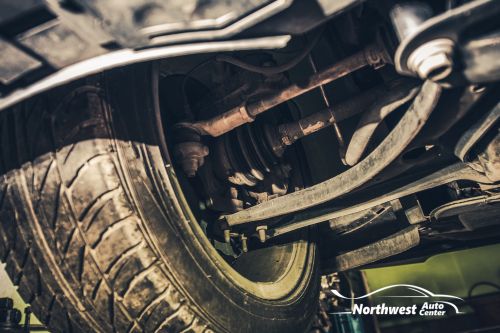
Understand the Basics of Your Vehicle’s Suspension
Before diving into maintenance tips, it’s helpful to understand what your vehicle’s suspension includes. A typical suspension system is made up of:
- Shocks and struts: Absorb and dampen road impact and keeps the tires on the ground.
- Springs: Support the weight of the vehicle and absorb shocks.
- Control arms and bushings: Connect the wheel hub to the frame, allowing movement while keeping the wheels aligned.
- Ball joints and sway bars: Help with steering and stability during turns.
Each of these components plays a role in how your vehicle handles and feels on the road. A failure in one part can affect the performance of the entire system.
Prolonging the Life of Your Vehicle’s Suspension
Tip #1: Regularly Inspect Your Suspension Components
One of the easiest ways to extend the life of your vehicle’s suspension is to perform regular inspections. Look for:
- Leaking shocks or struts
- Cracked or worn bushings
- Rust or corrosion on springs or joints
- Uneven tire wear patterns
If you notice any of these signs, have a certified technician inspect the system. Early detection can prevent a minor issue from becoming a major problem.
** Note ** The aforementioned should be performed whenever the vehicle is in the shop for an oil service.
Tip #2: Keep Tires Properly Inflated and Aligned
Tires are the first point of contact with the road and play a big role in how your vehicle’s suspension performs. Driving with underinflated or overinflated tires places additional strain on suspension components. It’s essential to:
- Check tire pressure monthly.
- Rotate your tires every 5,000 to 7,000 miles.
- Get your wheels aligned once or twice a year, or when you notice pulling to one side.
Proper tire care minimizes unnecessary wear and tear on your vehicle’s suspension system and improves overall handling.
Tip #3: Drive Responsibly
How you drive directly affects the longevity of your vehicle’s suspension. Aggressive driving, sudden stops, hard turns, and speeding over potholes or speed bumps can quickly damage the system. To reduce stress on your suspension:
- Slow down over rough roads.
- Avoid potholes when possible.
- Don’t overload your vehicle.
- Brake and accelerate smoothly.
These simple driving habits reduce the impact your suspension takes daily and help it perform better for longer.
Tip #4: Don’t Ignore Strange Noises or Handling Issues
If your vehicle starts to make unusual noises—like clunking, squeaking, or knocking—or if it begins handling differently, don’t brush it off. These are often early warning signs of a failing suspension component. A common issue is a worn shock or strut, which can cause excessive bouncing or a rougher ride.
Addressing these symptoms quickly prevents further damage and keeps your vehicle’s suspension system functioning as it should.
Tip #5: Replace Worn Parts Promptly
Worn-out suspension components can cause a domino effect, leading to more extensive and expensive repairs. For example, a failing shock absorber can cause uneven tire wear and strain other parts like the control arms or sway bar links.
If a part of your vehicle’s suspension is compromised, replacing it promptly prevents other parts from being affected and restores your vehicle’s handling and comfort.
Protecting Your Ride for the Long Haul
The vehicle’s suspension system is key to safety, comfort, and performance. Though it may not be the flashiest system under your car, it deserves just as much attention as your engine or brakes. Through regular inspections, proper driving habits, and timely repairs, you can significantly extend the life of your suspension system.
Whether you’re driving through the heart of Houston or taking a weekend road trip, a well-maintained suspension keeps you in control and ensures a smoother, safer ride. For expert suspension inspections and maintenance, trust the experienced team at Northwest Auto Center of Houston to keep your vehicle running at its best.


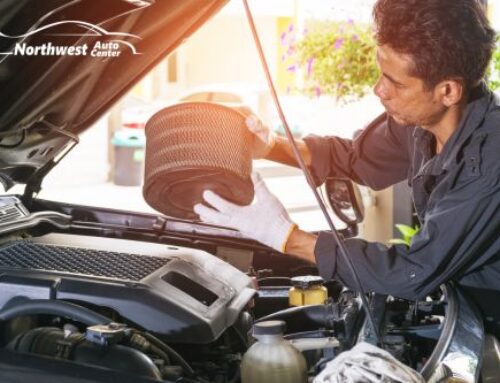
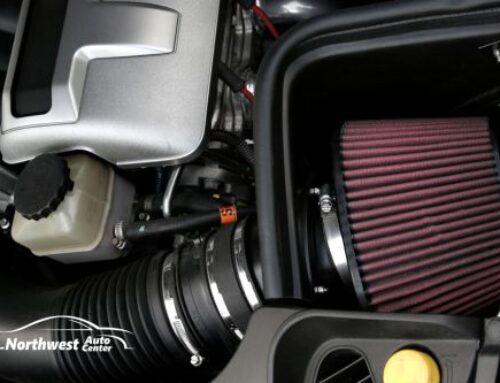
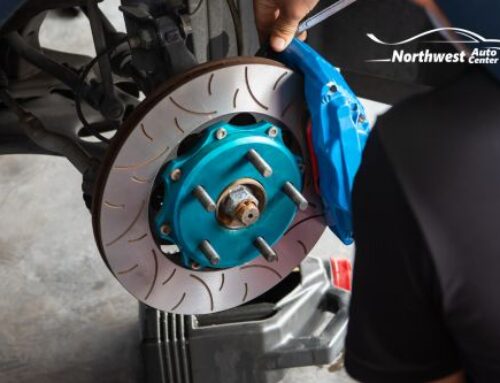
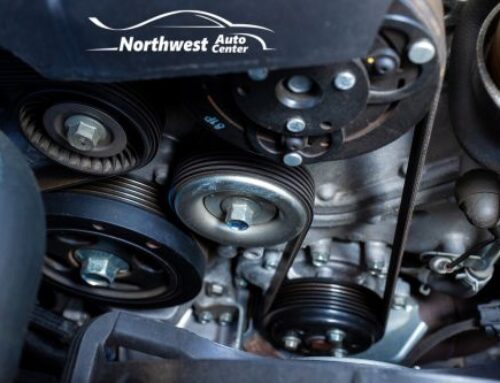
Leave A Comment
You must be logged in to post a comment.